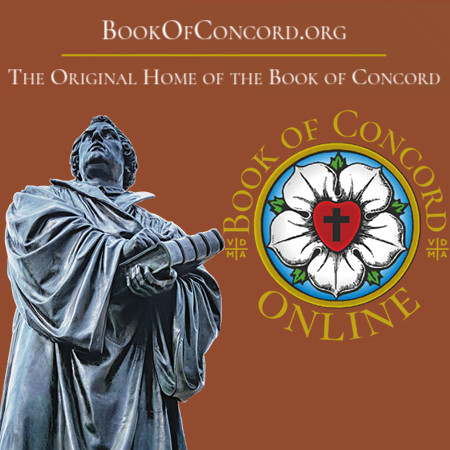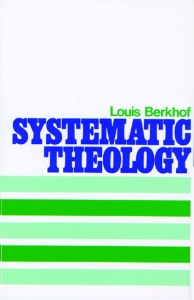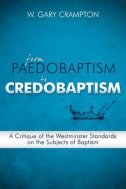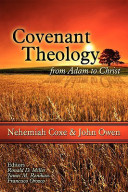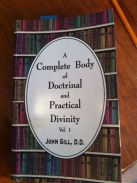From old posts:
Tabular Comparison of 1646 WCF and 1689 LBCF
Online Resources:
Baptism and Covenant Theology by Chantry
Reformed Baptist Covenant Theology by Renihan
Books:
Covenant Theology: From Adam to Christ by Coxe and Owen
The Distinctiveness of Baptist Covenant Theology by Denault
“By rejecting the notion of a Covenant of Grace under two administrations, the Baptists were in fact rejecting only half of this concept: they accepted, as we have previously seen, the notion of one single Covenant of Grace in both testaments, but the refused the idea of two administrations. For the Baptists, there was only one Covenant of Grace which was revealed from the Fall in a progressive way until its full revelation and conclusion in the New Covenant… If the Westminster federalism can be summarized in “one covenant under two administrations,” that of the 1689 would be “one covenant revealed progressively and concluded formally under the New Covenant.”
The Baptists believed that no covenant preceding the New Covenant was the Covenant of Grace. Before the arrival of the New Covenant, the Covenant of Grace was at the stage of promise. According to Benjamin Keach, the expression “the covenant of promise” that can be found in Ephesians 2.12refers back to the Covenant of Grace. If we are talking about a promise, this implies that it was not yet accomplished and was not yet in the form of a testament or a covenant. The Baptists believed the the New Covenant was the accomplishment of the promise, or in other words, the accomplishment of the Covenant of Grace. This doctrine is expressed in the following way in the 1689: “This covenant is revealed in the gospel; first of all to Adam […] and afterwards by farther steps, until the full discovery thereof was completed in the New Testament.” The New Testament brings the full revelation of the Covenant of Grace since the New Covenant is its accomplishment. The Baptists considered that the New Covenant and it alone was the Covenant of Grace.
…This distinction: [revealed/concluded] summarized the difference between the Covenant of Grace in the Old Testament and the Covenant of Grace in the New Testament. In the Old, it was revealed, in the New, it was concluded (fully revealed according to the expression of the 1689). John Owen comes to exactly the same understanding in his exegesis of Hebrews 8.6 where we read: “But in fact the ministry Jesus received is as superior to theirs as the covenant of which he is the mediator is superior to the old one, since the New Covenant is established on better promises.” *
*Pascal Denault,
The Distinctiveness of Baptist Covenant Theology (Birmingham, AL: Solid Ground Christian Books, 2013), pp. 61, 63, 64. (cited on
Reformed For His Glory)
It’s probably fair to say that most Calvinistic, Particular or “Reformed” Baptists feel peer pressure to pursue the study of paedobaptist covenantalism. I have been personally told on numerous occasions that I should move toward a “full” covenant theology and embrace the baptism of infants “into the covenant.” In an effort to deal with my Reformed brothers and sisters honestly I have taken the the time to understand the reasons for paedobaptism and still cannot agree with the practice. Over the years I have been blessed by more than a few titles that helped me move toward and define my Baptist covenant theology. In an effort to help others along I decided to create a list of books I consider essential reading on the subject, titles that I own, have read and will continue to re-read for years to come. This is not a definitive list of titles but a list to get you going in the right direction. Some of them I have mentioned before.

1) Most Particular Baptists have heard of A. W. Pink but not all Particular Baptists have heard or read his work on the covenants.
The Divine Covenants can be read online for free which I how is read it the first time. I ordered a physical copy (so I could mark up and underline) from
Pietan Publications via email for under $15 bucks. Solid deal.

2) The second book on the Baptist shelf isn’t a slam dunk but it is important because the editor included choice articles that deal with patristics, the logic behind paedobaptism and the relationship one covenant has to another.
Believer’s Baptism: Sign of the New Covenant in Christ is part of the New American Commentary Studies in Bible & Theology published by B&H Academic.

3)
Baptism in the Early Church by H. F. Stander & J. P. Louw is one of the most interesting I have read. Both Stander and Louw are Reformed and therefore baptize infants. They examine passages often sited as proof for infant baptism from the early church including art work. They arrive at a decidedly credobaptist position.
4) Paedobaptist covenant theology finds its fullest expression in the pronouncements of the Westminster Standards. Dr. Gary Crampton moved
From Padeobaptism to Credobaptism as the title of his short work suggests offering a critique of the Westminster Standards in relation to baptism.
5) One of the most important works for Particular Baptists to have been reprinted is
Covenant Theology: From Adam To Christ by
Nehemiah Coxeand John Owen. Coxe explains the differences of the old and new covenant, the difference between promise and fulfillment, who receives baptism is a give in after all the theological dust settles. For years I had referred to my own understanding of covenant theology as “modified” covenantalism only to find, with great joy, Coxe and Owen expressed the same theology with an emphasis on republication of the covenant of works at Sinai. Awesome read.

6) Last title on the list will add to your understanding of how covenant theology was expressed by Baptists and some Presbyterians during the 17th century. Many of our Particular Baptist fathers agreed with other non-conformists on the republican of the covenant at Sinai which was latter rejected by the Westminster Assembly. Dr. Beeke has a chapter in
A Puritan Theology: Doctrine for Life titled
The Minority Report in which he describes the idea of republication as being held by a minority of those in attendance at Westminster. Was it truly a minority view or the minority view held by those in attendance? Pascal Denault’s work titled
The Distinctiveness of Baptist Covenant Theology walks you through some important documents pertaining to covenant theology and the issues the church struggled with at the time. This work is key in tying up loose ends.

Honourable Mention:
A Complete Body of Doctrinal and Practical Divinity by John Gill. No matter where I go in my theological study I just can’t shake Dr. Voluminous. He is the only man to write a COMPLETE verse-by-verse exposition of the ENTIRE Bible. Others have come close to matching this task but do in fact skip verses, bunch them together or died leaving the work for others to complete. Dr. John Gill’s work on the covenant differs in places from the work of Nehemiah Coxe and therefore the London Baptist Confession 1689, but you will benefit from reading his works, using his commentaries and taking time to ruminate on these deep truths. At one time Valley Gospel Mission Books in Canada offered the 3 volume paperback set listed for $37.

